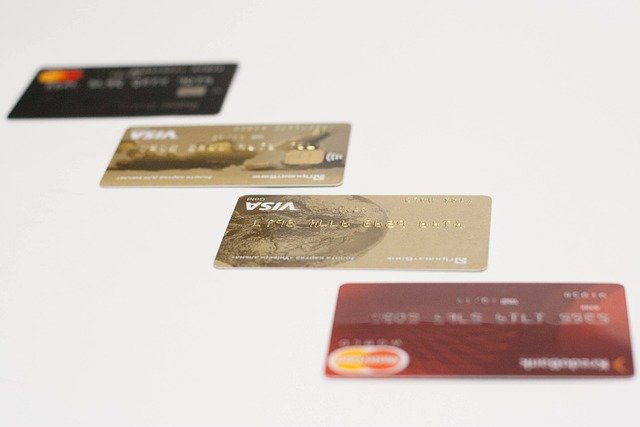Information on financial services
Personal loans have become an increasingly popular financial tool for individuals seeking to manage their expenses, consolidate debt, or fund significant purchases. This article will provide comprehensive information on personal loans, their features, and important considerations for potential borrowers. No sign-up is required to read this informative guide, which is designed for educational purposes only. It's important to note that terms and features may vary depending on the lender and your individual circumstances.

What exactly is a personal loan?
A personal loan is an unsecured form of borrowing that allows individuals to obtain a lump sum of money from a financial institution. Unlike secured loans, such as mortgages or auto loans, personal loans don’t require collateral. The borrowed amount is typically repaid in fixed monthly installments over a predetermined period, usually ranging from one to seven years. Personal loans can be used for various purposes, including debt consolidation, home improvements, medical expenses, or unexpected financial emergencies.
How do personal loan interest rates work?
Interest rates on personal loans can be either fixed or variable. Fixed rates remain the same throughout the loan term, providing predictable monthly payments. Variable rates, on the other hand, may fluctuate based on market conditions. The interest rate you’re offered depends on several factors, including your credit score, income, and debt-to-income ratio. Generally, borrowers with higher credit scores and stable incomes are more likely to qualify for lower interest rates. It’s crucial to compare offers from multiple lenders to find the most competitive rate for your situation.
What are the typical requirements for obtaining a personal loan?
While requirements may vary among lenders, common criteria for personal loan approval include:
-
Good to excellent credit score (usually 640 or higher)
-
Stable income and employment history
-
Low debt-to-income ratio
-
Age of majority in your state (usually 18 or 21)
-
Valid identification and proof of address
-
Bank account for fund disbursement
Some lenders may have additional requirements or offer loans to borrowers with lower credit scores, albeit at higher interest rates. It’s essential to review each lender’s specific criteria before applying.
Are there different types of personal loans available?
Yes, there are several types of personal loans to suit various financial needs:
-
Unsecured personal loans: The most common type, requiring no collateral.
-
Secured personal loans: Backed by collateral, such as a savings account or vehicle.
-
Debt consolidation loans: Specifically designed to combine multiple debts into a single loan.
-
Co-signed loans: Involve a co-signer who agrees to repay the loan if the primary borrower defaults.
-
Fixed-rate loans: Offer consistent interest rates and monthly payments.
-
Variable-rate loans: Have interest rates that may change over time based on market conditions.
What should you consider before applying for a personal loan?
Before applying for a personal loan, consider the following factors:
-
Your credit score and financial health
-
The loan’s purpose and whether it aligns with your long-term financial goals
-
The total cost of borrowing, including interest and fees
-
Your ability to make regular payments over the loan term
-
Alternative financing options that may be more suitable for your needs
-
The reputation and customer service of potential lenders
In Taiwan, personal loans are offered by various financial institutions, including banks, credit unions, and online lenders. It’s important to research local regulations and consumer protection laws to ensure you’re working with reputable lenders.
How do personal loan rates and terms compare among providers?
When considering a personal loan, it’s crucial to compare offers from multiple lenders to find the best terms and rates for your situation. Here’s a comparison of some hypothetical personal loan offerings:
| Provider | Interest Rate Range | Loan Amount Range | Loan Term | Key Features |
|---|---|---|---|---|
| Bank A | 5.99% - 18.99% | $1,000 - $50,000 | 1-7 years | No origination fee, flexible terms |
| Online Lender B | 6.95% - 35.99% | $2,000 - $40,000 | 3-5 years | Fast approval, no prepayment penalty |
| Credit Union C | 7.99% - 17.99% | $500 - $25,000 | 1-5 years | Lower rates for members, personalized service |
| Peer-to-Peer Platform D | 5.99% - 35.99% | $1,000 - $40,000 | 3-5 years | Competitive rates, quick funding |
Prices, rates, or cost estimates mentioned in this article are based on the latest available information but may change over time. Independent research is advised before making financial decisions.
In conclusion, personal loans can be a valuable financial tool when used responsibly. They offer flexibility in terms of use and can help borrowers achieve various financial goals. However, it’s crucial to carefully consider the terms, interest rates, and your ability to repay before committing to a personal loan. By understanding the different types of personal loans available and comparing offers from multiple lenders, you can make an informed decision that aligns with your financial needs and long-term objectives.






